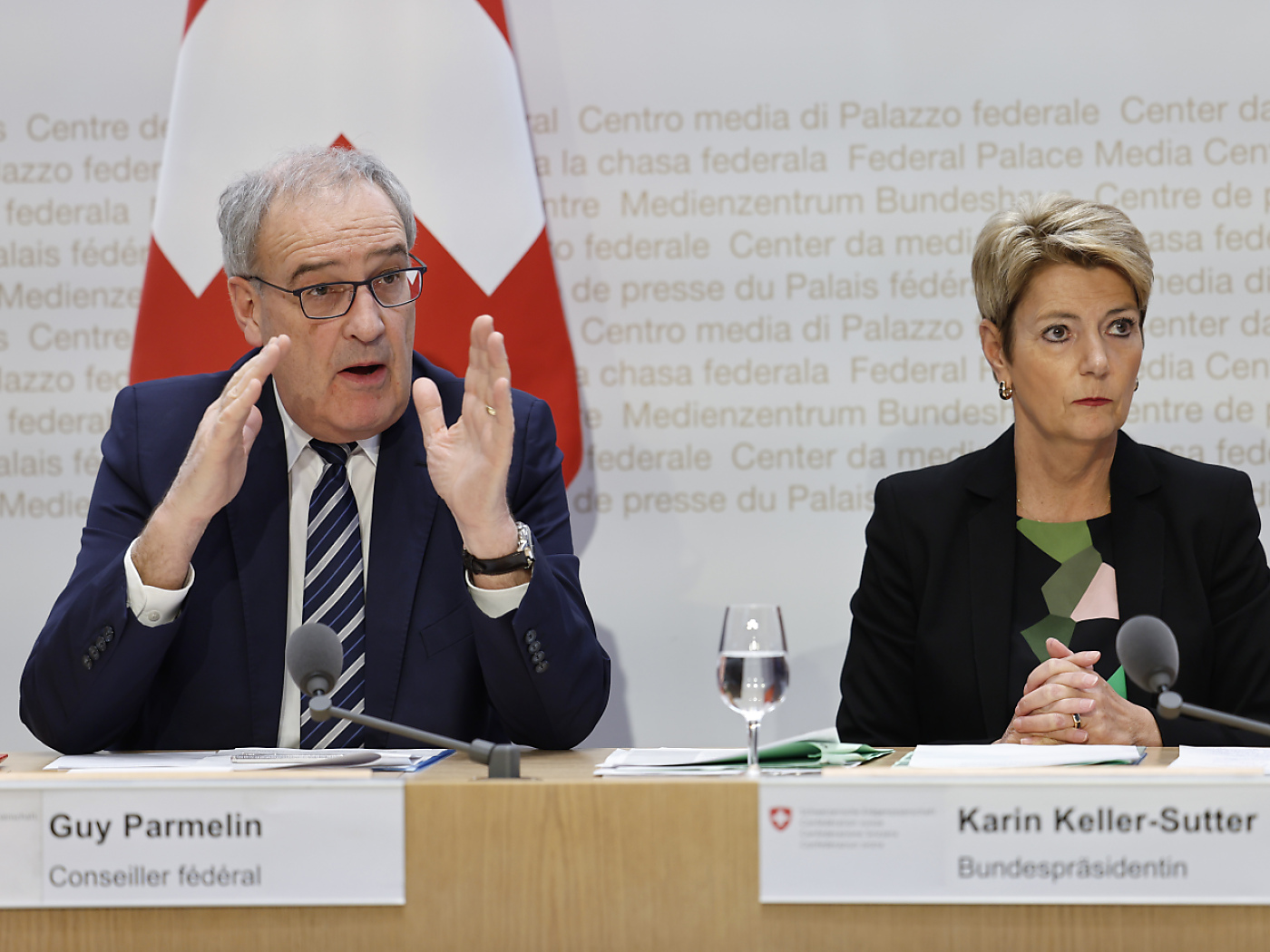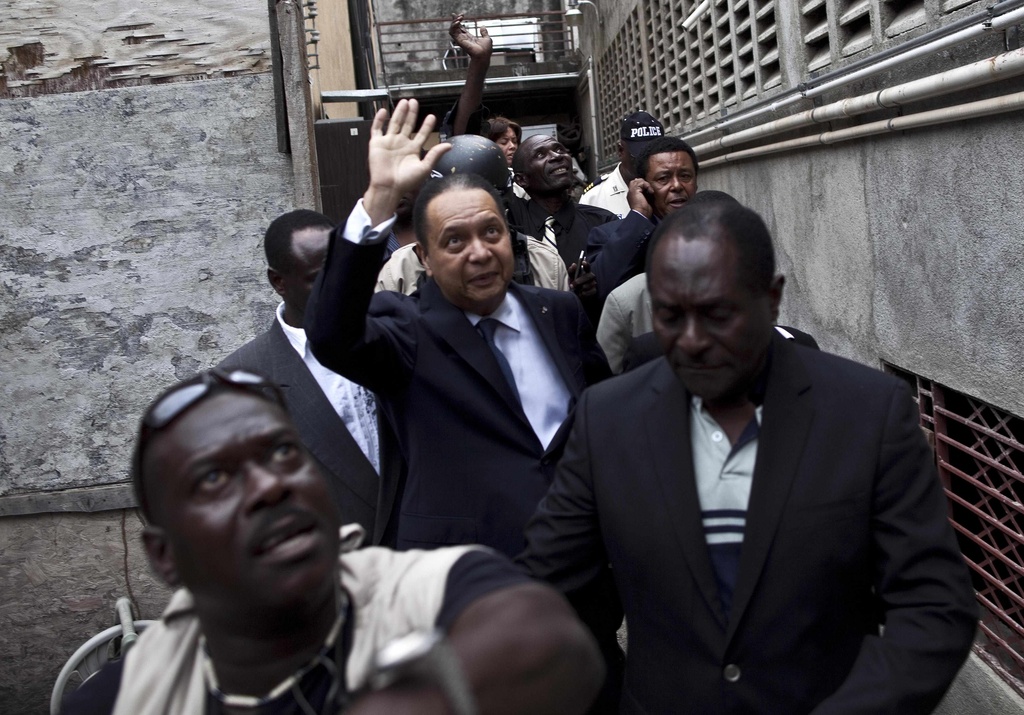States in no rush to recover dictator assets

Democracy may be slow in coming to post-revolutionary Tunisia and Egypt, but so too are attempts to recover the countries’ assets frozen in Switzerland.
Swiss red tape could be to blame. But it is more likely the fault of the transitional governments of Egypt and Tunisia, according to the Fribourg-based lawyer handling the claims.
Ridha Ajmi has led moves to freeze assets held in Switzerland by the two countries’ ousted presidents, as well as a more recent block of Libyan assets.
Assets held in Switzerland by former Tunisian leader Zine El Abindine Ben Ali and Egypt’s Hosni Mubarak and their entourages have been frozen since January and February respectively.
The new Tunisian and Egyptian governments have filed applications with Switzerland to begin the process of unblocking the assets, but the requests were rejected last week as being incomplete.
Swiss authorities sent diplomatic cables to the two countries explaining that they needed to submit evidence of criminal wrongdoing by the former dictators. The Swiss are sending advisors to help the countries formulate their requests.
Concretely, Egypt and Tunisia must provide Switzerland with examples of abuses of power or the theft of public funds and subsequent deposits into Swiss accounts. Bank account numbers and credit card details should also be shared.
All this presents “an impenetrable wall of bureaucracy” for these countries, according to Hasni Abidi, director of the Geneva-based Study and Research Center for the Arab and Mediterranean World.
“Switzerland is asking [Egypt] to gather impossible documents to begin [proceedings]. Tunisia is coming up against the same sort of problems,” he told swissinfo.ch.
Good practice
But for Ajmi, the Swiss requirements are reasonable procedures required by law – itself, unfamiliar territory for the two nations in the past.
“Tunisia wasn’t a state of law. Neither was Egypt. It was a dictator state. There isn’t this spirit of respecting procedures. We have to help these countries to function in this way. It’s a good exercise for Tunisia and Egypt,” he told swissinfo.ch.
The Swiss justice ministry says the procedures are in place to ensure the funds “cannot be misappropriated by anybody”.
Ajmi does recognise, however, that the process is dragging.
“The Tunisian authorities are taking their time. The political willpower is lacking. In Egypt the situation is clearly better but it is not enough,” he said.
Both countries are being governed by their armies, which were once tied to the former regimes and are unwilling to rush action dealing with assets. They are also less likely to “care” about public opinion, Ajmi said.
Exerting pressure
Increased public pressure calling for the assets to be returned would help to move the cases along – a factor missing until now.
“It’s a matter of public opinion. The public in these countries are not well informed about the [asset recovery] process and it’s clear that the political authorities in these countries have other things on their minds. They have a lot of problems. But they also benefit from doing nothing,” he said.
“We have to strengthen the public voice. We have to exert some pressure.”
Impending political elections should also advance the cases forward, with elected politicians being answerable to voters, Ajmi added.
Training
In the meantime, Switzerland is sending judicial experts to Tunisia and Egypt to assist in preparing their applications, and to “help both countries to successfully conduct the necessary criminal procedures necessary to demonstrate the illicit origin of the frozen assets”, the foreign ministry told swissinfo.ch.
One expert mission has already been sent to Tunis and another will head to Cairo soon.
“Swiss experts have to go there and explain, to judges in particular and those working on the case, how it works, how to move things on and train them,” Ajmi said.
In the past, Switzerland has sent similar expert missions to Nigeria and the Democratic Republic of Congo.
The foreign ministry notes that while such aid has proven successful in assisting states that demonstrate a “political will” to recover illegal assets, “in the absence of such political will, assistance was not effective”, as was the case with the assets of Mobutu Sese Seko, in which $6.7 million was returned to Mobutu’s heirs in 2009.
Switzerland froze assets linked to Tunisia’s ousted president, Zine el-Abidine Ben Ali, and about 40 people in his entourage on January 19, less than a week after he was toppled from power.
Swiss officials estimate Tunisian government officials placed some $620 million (SFr 555 million) in Swiss bank accounts.
In February, Switzerland froze assets belonging to Hosni Mubarak of Egypt and his associates. Mubarak’s worth remains a mystery, but claims that he and his sons amassed up to $70 billion helped drive protests that brought him down.
In both cases, the money is frozen for three years. If the illicit origin of the assets is proven within that time, Swiss authorities and Egyptian and/or Tunisian authorities will have to then define a pattern for restitution.
If it cannot be demonstrated within the framework of a criminal law procedure or a mutual legal assistance proceeding, the assets will have to be unfrozen.
If Tunisia or Egypt were to be incapable of successfully undertaking criminal proceedings and if the mutual legal assistance procedure with Switzerland were unable to move forward, the Federal Council could decide to apply the new Act on Restitution of Illicit Assets, which came into force in February.
A Swiss-based International League for the Defence of Arab Populations was created in March by Swiss lawyer Ridha Ajmi to coordinate the Tunisian, Egyptian and Libyan asset recovery requests inside Switzerland. Should other countries make similar requests for assets in the future, it will also take on their cases. Consisting of lawyers, journalists and artists, it will offer advice and support populations in transition.
(With input from Frédéric Burnand)

In compliance with the JTI standards
More: SWI swissinfo.ch certified by the Journalism Trust Initiative














You can find an overview of ongoing debates with our journalists here . Please join us!
If you want to start a conversation about a topic raised in this article or want to report factual errors, email us at english@swissinfo.ch.